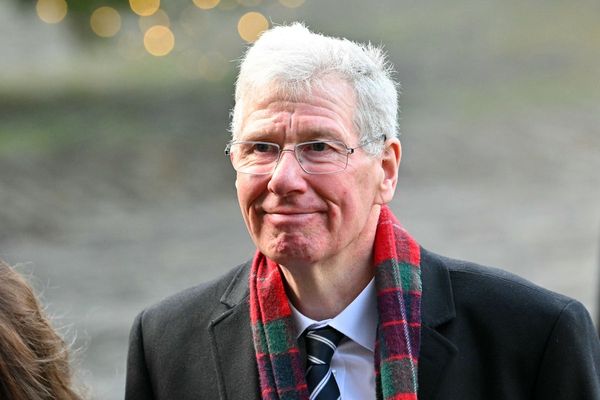
The subject line of the November 25 edition of US politics newsletter Tangle, which came out a few hours before I spoke to founder Isaac Saul, was “A trans bathroom controversy in Congress”. But that was not the subject of the lead item. The first thing a subscriber would read that day were two corrections to the publication’s recent coverage, featuring not just the facts that had been printed erroneously, but a candid explanation as to how those errors came about. The correction ends by noting that these represent the “120th and 121st corrections in Tangle’s 277-week history”.
This is as good an introduction to Tangle — which calls itself “an independent, nonpartisan, subscriber-supported politics newsletter” — as one is likely to get.
“It all comes to the question, ‘how do we improve trust in media?'” Saul told Crikey. “We show our work. If we screw something up, putting it as a footnote and ghost-editing the piece is not a way to build trust.”
Each day, Tangle sends out a rundown of an issue dominating US politics, detailing the commentary from both sides of the aisle, before a “my take” segment, which details, often at great length, Saul’s own analysis and conclusions. It reports having more than 40,000 paid subscribers, and hit US$1 million in subscriber revenue this year. According to a reader survey, a third of Tangle‘s subscribers say that they’re on the left, a third on the right, and the last third are either centre or independent.
“My read on the current state of American politics and media consumption — and you know, for what it’s worth, similar in other parts of the world, Great Britain and Australia — is that we are inhabiting a different reality based on our political preferences,” Saul said. Tangle aims to reestablish some shared notions of what is happening. “So our North Star is that we are trying to create a news organisation that’s trusted by people, regardless of who they vote for, and that’s a really difficult challenge, to get people from the right, left and centre to trust the content.”
Saul said he believes the 2024 presidential election was the most “vitriolic” of the post-2016 Trump era elections, which is really saying something, particularly given the context in which the publisher gained a new prominence. In the aftermath of 2020, Saul dedicated himself to dealing with claims that the election had been stolen from Donald Trump, peaking with a 400-tweet-long thread dealing with each claim as it arose.
“I was thinking about, ‘how do I communicate what I think is the reality and the truth about these allegations, in a way that can maintain and preserve the trust that a lot of my conservative audience has in me’,” he said. “Because I know they were people who are more likely to believe a lot of that stuff, so I sort of started there, and kind of worked from that position.”
Saul said the retreat into silos, the dismissal of claims merely based on who was making them, and the attended distortion of reality, was not solely the domain of frothing election denialists in the media.
“I think all journalists should be skeptical and open minded at the same time, and I did not see a lot of open-mindedness among journalists who were reporting on allegations of election fraud. I mean, there were allegations that I did not immediately dismiss as being farcical or silly or whatever, that ended up having some narrative truth,” he said — though he was careful to make clear that he did not uncover anything that would change any results.
He puts it plainly: “There was voter fraud and there was election fraud in 2020, there was voter fraud and election fraud in 2024, there’s a voter fraud and election fraud in most elections. And being able to conceive of that, admit that, and then explain why the other stuff is nonsense, I think, made it easier for people to hear me and trust me, who maybe had a predisposition to believe that the election was stolen.”
This determination to be trustworthy to a wide audience extends to language choices; after noting that readers were unsubscribing based on coverage of immigration issues — seemingly because of partisan- favoured phrases like “undocumented migrant” or “illegal immigrant” — Tangle landed on the more neutral “unauthorised migrant”. The number of complaints about Tangle‘s immigration coverage, Saul said, went from daily correspondence to “literally zero”.
As you might expect from the leader of a project that dedicates itself so assiduously to examining both sides of any subject, Saul has mixed feelings on the prospect of four more years of Trump, both for the United States generally and Tangle as a source its readers find trustworthy.
“I’m worried about the mass deportation proposal, I think that has the potential to cause widespread civil disobedience and violence in the streets,” he said. “But I’m not worried he’s going to lead us into a nuclear war or a trade war that destroys our economy. So hopefully if I’m clear about that, when I talk about the stuff I do have serious worries about, his supporters will be able to hear me more clearly.”
Have something to say about this article? Write to us at letters@crikey.com.au. Please include your full name to be considered for publication in Crikey’s Your Say. We reserve the right to edit for length and clarity.







